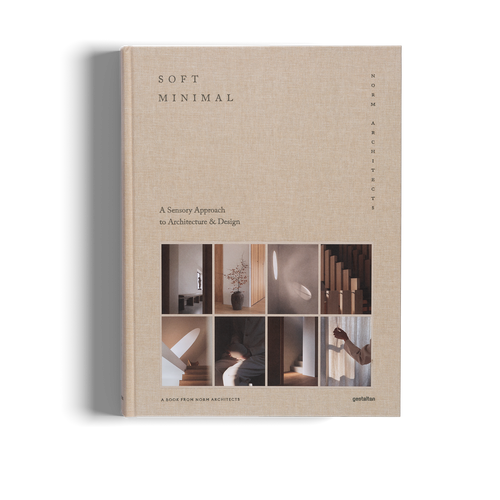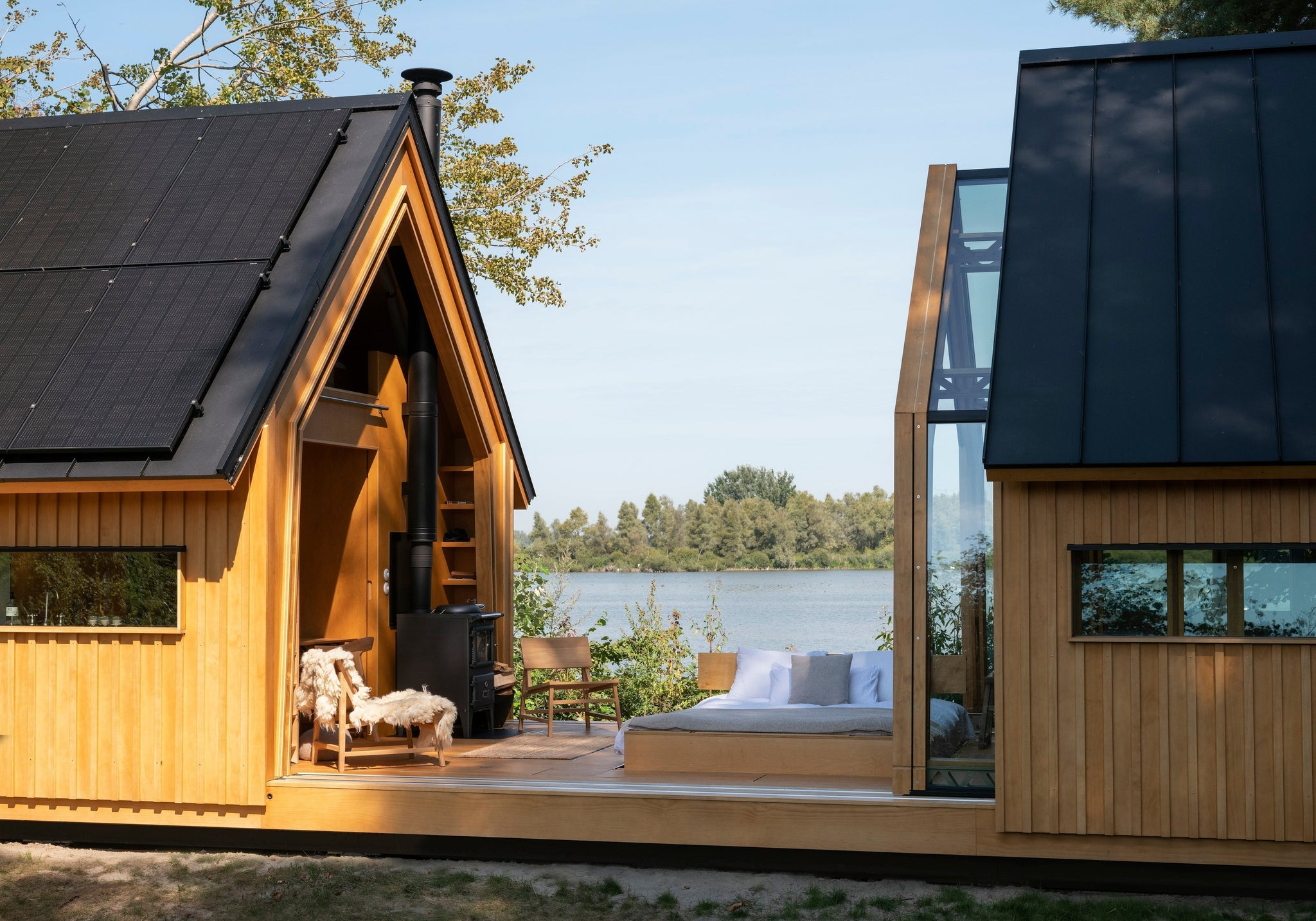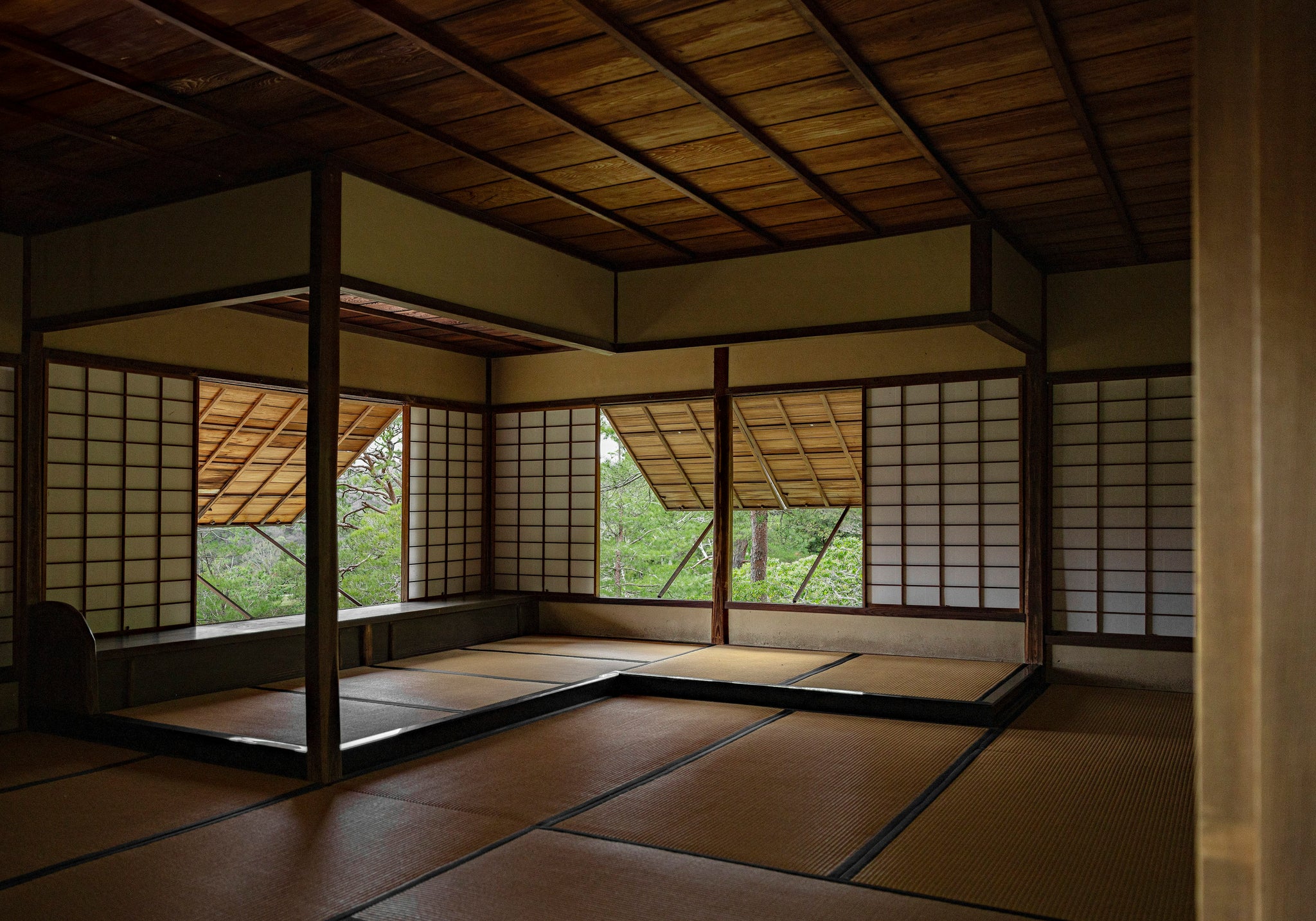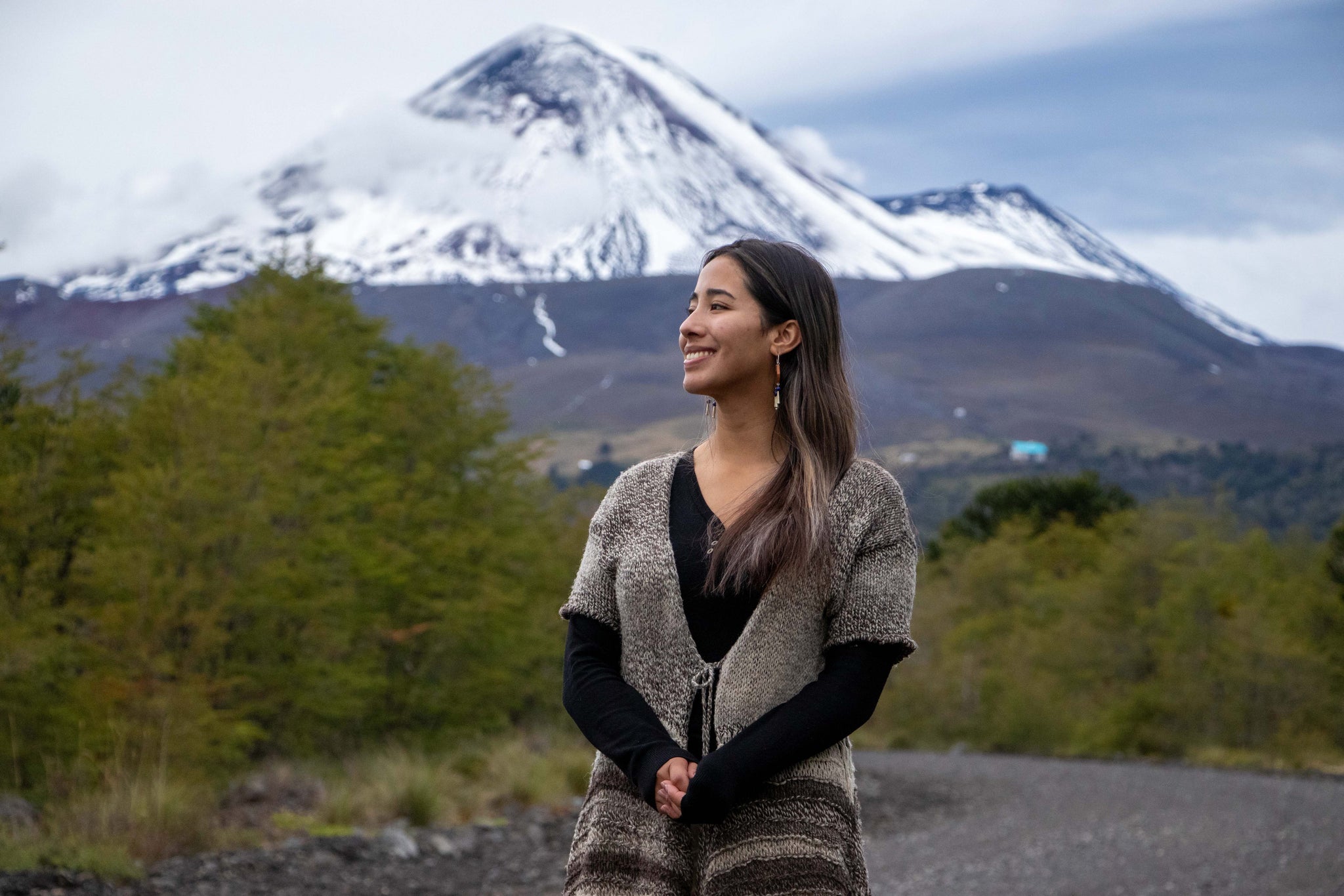
03/2020 Escape travel
Still largely unknown to tourists, Fabriken Furillen lies on a remote peninsula in the northeastern corner of the island of Gotland. Far from Stockholm’s urban frenzy, this landscape is defined by eroded rocks jutting out from the ground alongside deserted Baltic Sea beaches and sea birds nesting among the ruins of an old gravel quarry.
The rough, yet inspiring, natural landscape was once quarried for limestone—until it was closed to the public and used for military operations from the 1970s to the early 1990s. Today, in the heart of this cinematic setting, lies the striking gray structure of Fabriken Furillen, an eco-friendly design masterpiece created by photographer and entrepreneur Johan Hellström.
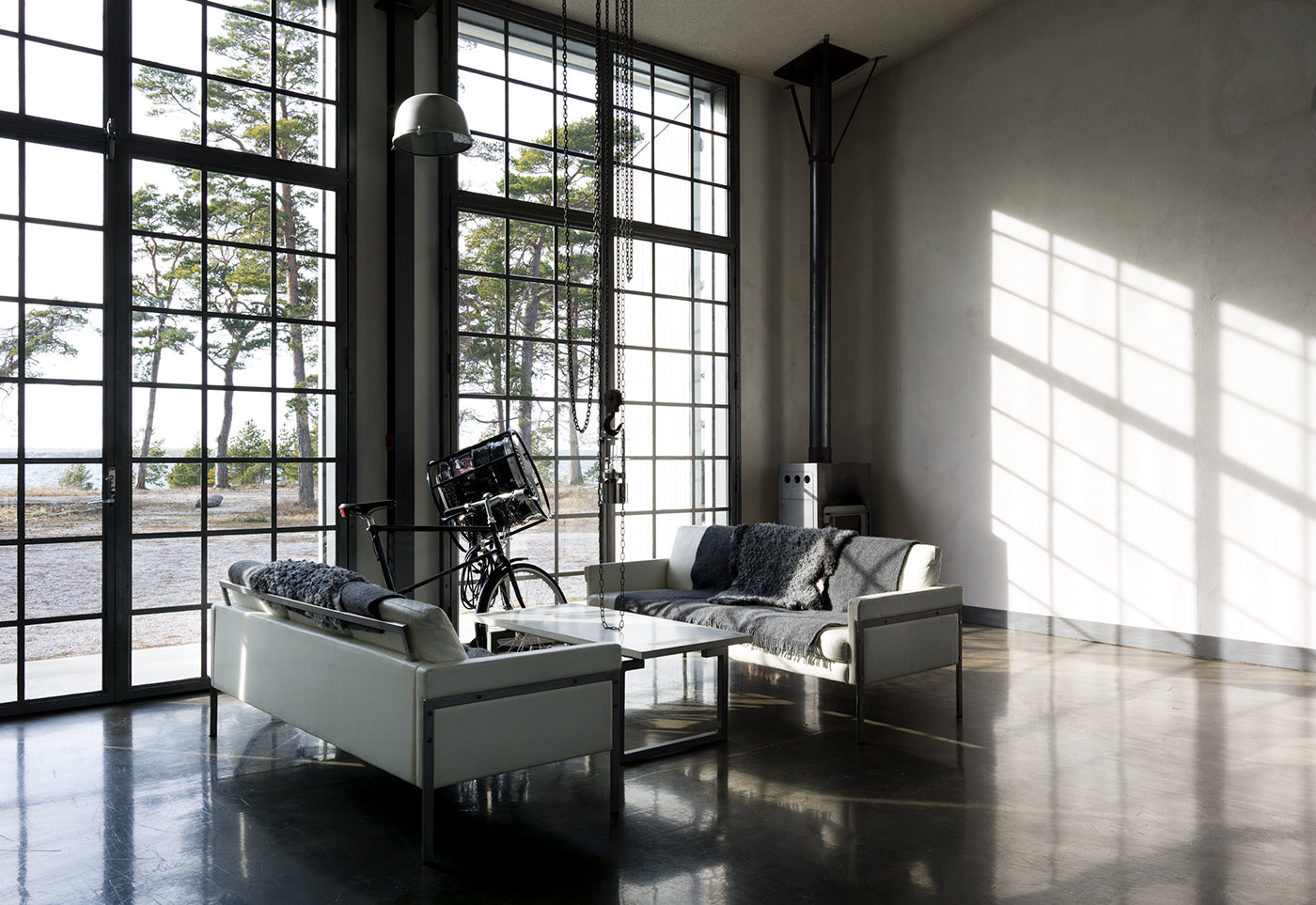
A vision in monochrome, the industrial-scale communal rooms at Fabriken Furillen are stunning with their highly polished cement floors and multipaned glazed walls. (Photo: Peter Guenzel, Bon Voyage)
Transformed into a hotel and restaurant in 2000, the old factory buildings were initially used as a backdrop for commercials and music videos for rock bands. In 1999, Johan Hellström bought the whole 1,235-acre complex so he could convert it into a minimalistic hotel destination. Starting with the crumbling worker’s canteen, Hellström gave a new life to the factory’s existing infrastructure, using reclaimed local materials such as limestone, concrete, and hardwood. In the restaurant, heavy chains still hang from the ceiling as a reminder of the building’s former life.
Standing separate from the main building, the 18 rooms and two cabins were refurbished. Modern Scandinavian design and myriad shades of gray and white usher in a new purpose for the structure. Inside the rooms, direct light and clean lines enhance the exterior landscape and the views of the Baltic Sea. The cabins have no electricity, offering guests a rare chance to truly switch off, whereas the more conventional rooms feature Scandinavian brands such as Hästens beds and Bang & Olufsen technology. All of the lodgings are enlivened by small bucolic touches like sheepskin rugs and locally produced blankets made of Gotland wool.
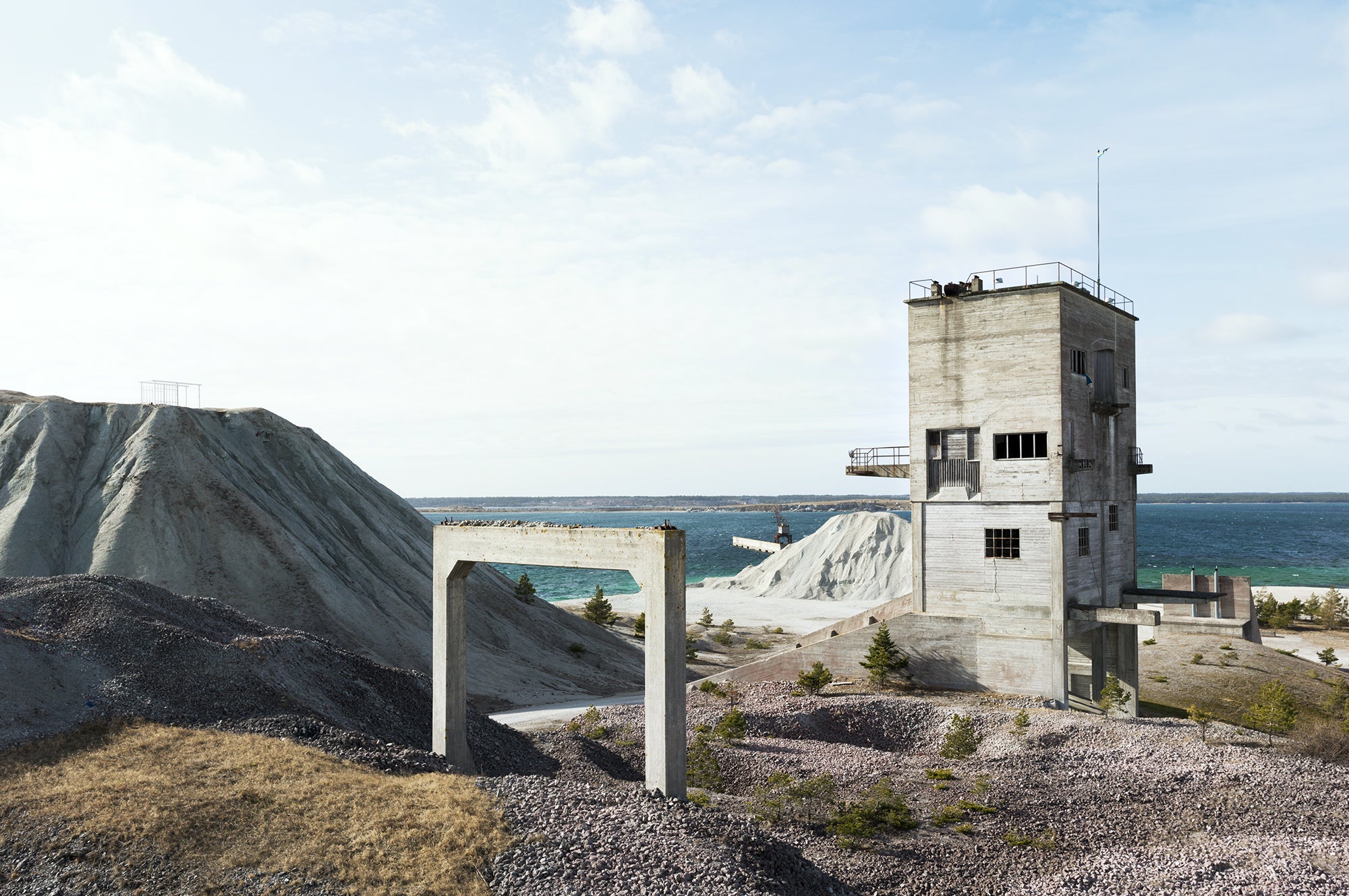
Like a dystopian movie scene, this revisioned Brutalist structure rises out of the barren Gotland marshes like a futuristic setting. (Photo: Peter Guenzel, Bon Voyage)
Every meal on the property is prepared using local and seasonal ingredients, some of which are freshly handpicked from the hotel’s own farm. Chef Filip Fastén, along with friends, run the pop-up restaurant at Furillen during the summer. Because Fastén was named Sweden’s chef of the year in 2014, his presence at the hotel brings the peninsula into the national spotlight for the high season. The chef previously worked at restaurants Frantzén and Le Rouge in Stockholm.
Betting on an island-grown approach, Fabriken Furillen makes the most of its local surroundings: the quarry, the former industrial grounds, the island’s seasonal produce, and the reclaimed building materials found near the building site. Equally eco-friendly, guests can easily explore the hidden reaches of the peninsula on a Skeppshult bicycle, provided free of charge!
Explore places fusing world-class hospitality with a conscious approach through Bon Voyage. Available in German and English.


